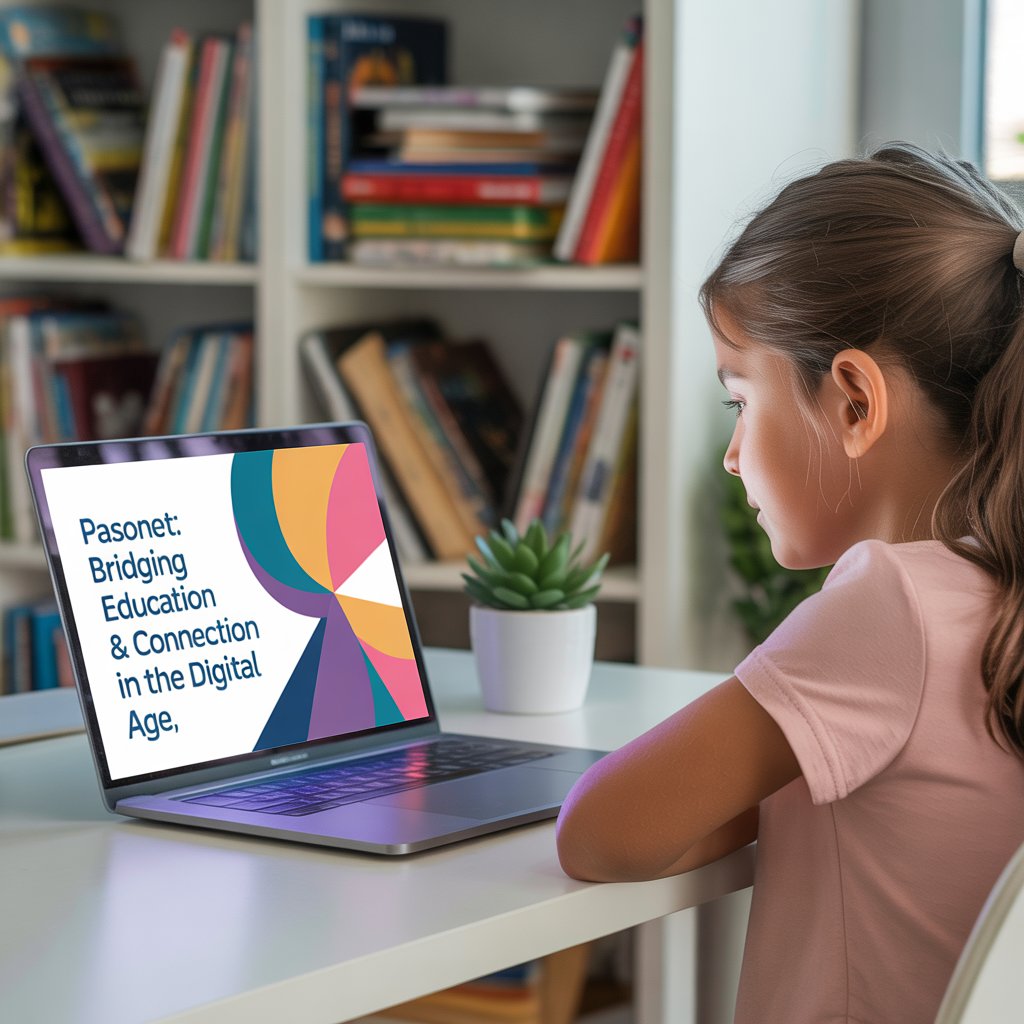The digital transformation sweeping education has given rise to a multitude of EdTech platforms, each promising to streamline learning, communication, and engagement. Among them, Pasonet Technologies Pvt. Ltd., and its flagship platform Yokibu, aims to stand out by connecting all stakeholders in a classroom ecosystem—students, teachers, and parents—into an always‑connected, collaborative environment. Though its name may not be widely known outside India, Pasonet’s model holds lessons for how technology can close communication gaps in school systems.
This article explores Pasonet’s origins, mission, features, challenges, and impact, as well as its future potential in the EdTech landscape.
Origins & Company Profile
Pasonet Technologies was incorporated in Chennai, Tamil Nadu, India, on 6 September 2007. Its business classification includes software publishing, consultancy, and supply—meaning it builds ready software, custom applications, and provides support services.
However, according to some sources, as of June 2025, Pasonet Technologies has been marked as “Strike Off” under MCA records.But earlier reports (e.g. from The Hindu BusinessLine) describe active operations and plans for expansion, implying the company was operational in recent years.
Its founders include Balasubramaniam Chandrasekar and Narayanan Sangeetha. The company’s registered address is in Sholinganallur, Chennai.
In the EdTech realm, Pasonet is best known for its platform Yokibu, which aims to integrate communication, content sharing, progress tracking, and collaboration among schools, parents, and students.
Mission & Vision
Pasonet positions itself as more than simply a software provider—it aims to fuel “always connected and engaged classrooms”. The concept is to move beyond periodic parent‑teacher meetings or static report cards, enabling real‑time, continuous interaction, sharing of learning materials, and transparency in a child’s academic journey.
Some key guiding ideas:
Their growth strategy envisions expanding across India (pan-India) to reach thousands of schools.
The Yokibu Platform: Features & Capabilities
Yokibu is the linchpin of Pasonet’s value proposition. Below are its main features and components:
Unified Communication
Yokibu allows teachers, parents, and students to message or share information in an integrated environment. This means:
Resource & Content Sharing
Teachers can upload lesson materials, worksheets, notes, study resources, and videos, which students or parents can access. This reduces dependency on physical handouts and makes content accessible remotely.
Assignment & Assessment Tracking
Yokibu supports assigning work, accepting submissions, grading, and giving feedback. Students’ progress and performance data can be tracked, and parents can observe or monitor.
Parent Engagement & Transparency
Parents can stay informed of their child’s progress, attendance, pending tasks, and teacher comments. This helps close the information gap that often exists in many school systems.
Collaboration & Peer Learning
The platform encourages interaction among students, group tasks, or peer feedback — making learning less siloed.
Mobile Accessibility
Recognizing that many users rely on mobile devices, Yokibu offers mobile apps (for Android, presumably iOS) so stakeholders can access the platform anytime.
Security & Moderation
To ensure safety, the platform includes content moderation, role-based access, and communication oversight.
Growth, Challenges & Market Position
By some reports, Pasonet had onboarded 650 schools across major Indian cities like Chennai, Mumbai, Hyderabad, and Bangalore.
The company has expressed ambitions to reach 5,000 schools over a 2–3 year span, contingent on long-term capital injection.In interviews, the founder noted that the platform at that time did not charge schools or parents for initial signup, presumably to build adoption momentum.
it.Change Management & Training
Teachers, administrators, and parents must adopt new habits. Without adequate training, resistance or under-utilization is a common failure point for EdTech platforms.Regulatory & Compliance Issues
Privacy, data security, and compliance with education regulations (especially for minors) are critical. Ensuring robust encryption, user consent protocols, and safe design is non-negotiable.Operational Viability (Strike-Off Status)
The apparent “Strike Off” status in financial registries raises questions about whether the company is still fully operational or revived later.
Impact & Significance
Despite challenges, Pasonet’s model is strategically important in several dimensions:
-
Bridging Gaps in Stakeholder Communication
Many schools globally struggle with fragmented communication (paper memos, random WhatsApp groups, offline announcements). Yokibu’s integrated model aims to formalize and streamline the flow.Enabling Remote & Hybrid Learning
Even in normal times, the ability to access content, submit work, or communicate remotely can support continuity (e.g. in pandemics, weather interruptions, or long weekends).Empowering Parents
In many traditional systems, parents are out-of-the-loop. Giving them transparency over assignments, grades, and teacher feedback helps them better support their children.Data-Driven Insights
With digital interactions, institutional leaders and teachers can generate analytics about student performance trends, engagement, attendance, or task completion. This can inform pedagogical decisions.Inclusivity & Scale
If successfully deployed even in semi-rural or smaller towns, Pasonet’s model can democratize quality interfaces across diverse school environments.
Modular & Tiered Offerings
Offer basic versions free (communication, announcement, resource sharing) and paid premium modules (analytics dashboards, advanced assessments, AI tutoring). This freemium model is common in software platforms.
AI & Personalization
Integrate AI or machine learning to recommend study paths, detect struggling students early, or auto-flag content gaps.
Offline & Low-Bandwidth Mode
Design features that degrade gracefully (e.g. caching resources, sync offline) for areas with intermittent internet. Partnerships with Governments & NGOs
Scaling via institutional partnerships can help reach underserved regions. Governments may adopt or endorse such platforms for public schools Integration with National Standards
Synchronize curriculum, syllabus data, exam calendars across states, and integrate with national educational frameworks for smoother adoption.
Multi‑lingual Support & Localization
India is linguistically diverse. Adding regional language support will help far wider adoption.
Expanding Beyond India
Once mature, Pasonet’s model could adapt to neighboring countries or markets with similar educational challenges.
Conclusion
Pasonet, via its Yokibu platform, represents one of the more thoughtfully designed attempts in India’s EdTech domain to holistically unite schools, teachers, students, and parents in a digital ecosystem. The idea is simple, yet powerful: communication, resource access, transparency, and engagement should not be patchwork, but seamlessly integrated.
However, lofty vision alone is insufficient. Execution—covering infrastructure readiness, training, monetization, competitive positioning, and regulatory compliance—is essential. The indication of a “strike off” status in certain records suggests cautious optimism: perhaps the venture paused, restructured, or must revive itself.
Even so, the ideas behind Pasonet remain relevant. As education continues its digital transformation, solutions like Yokibu may serve as models or inspiration. In India and beyond, the challenge is to design platforms that are accessible, inclusive, effective, and sustainable. Pasonet’s journey—of ambition, hurdles, and lessons—offers valuable insights to technologists, educators, and policymakers alike.







